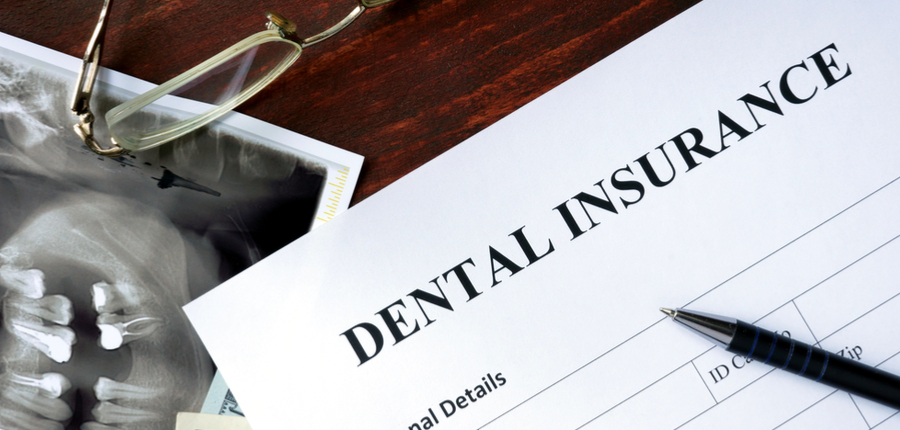
As they say, you can captivate the world when you flash that perfect smile with those pearly white teeth. But beyond the aesthetics, having clean and healthy teeth is an important part of our oral health which affects our overall well-being.
Having good oral health improves our senses, confidence in ourselves, and how we relate to other people. That is why it is important to take care of our mouth and teeth. We do this by brushing and flossing our teeth regularly. But aside from this, we also need to consult our dentist on a regular basis.
Not everyone gets to see a professional for preventive dental interventions and treatments. The common reason is that they cannot afford the rising cost of dental services. Because of this, experts are saying that it would be wise to invest in a dental insurance. But then again, how much does dental insurance cost? Is it worth it? Or will it be a contributing factor for dental services to continue to be inaccessible to other people?

Average Cost of Dental Insurance
Dental insurance price varies with the insurance provider and the plan that you will get. It is usually paid through annual premiums.
According to the National Association of Dental Plans, the average dental insurance price for group plans in 2016 was between $168 and $366 per annum. Annual premiums for families averaged between $325 and $681.
Delta Dental, one of the top dental insurance providers, offers dental insurance with an annual premium of $91.80 for those who will avail of an individual plan. The premium for two family members is $148.53 while it is at $217.56 for every family with three or more members. For Aetna Dental, the charge for an individual plan is at $139.95 per annum while a family plan costs $179.95.
United Healthcare also offers dental insurance starting at $87.52 for their Dental Primary Plan up to $220.32 for their Dental Premier Elite Plan. These dental insurance premiums can be paid through credit card, money order, or check payments.
What are Included
There is usually a 100-80-50 coverage in dental plans. This means that they cover up to 100% of preventive care treatments like cleanings and x-rays. Up to 80% is typically covered for services that require basic procedures such as extractions and fillings. Meanwhile, up to 50% is covered for major services such as crowns and dentures.
Additional Costs
Whatever is not included in the dental plan coverage is to be paid for in full by the patient. For example, Delta Dental does not cover maxillofacial prosthetics and implant services as stated in their contract. They also do not pay for a hospital stay in case your procedure requires you to be admitted to a hospital facility.
You have to check if there is a waiting period before you can be covered by your insurance as you will shoulder all the expense for dental services done within the waiting period. Some dental insurance providers impose this period to make sure that you will not just get an insurance to avail of an expensive dental procedure and then drop your membership right after. United Healthcare has a waiting period of six months to one year while there is no waiting period for Delta Dental.
You also have to know if your dental insurance plan asks you to pay a deductible before your insurance coverage begins. Aetna has a fixed deductible price of $50 while there is none for Delta Dental.
Take note also that dental insurance plans usually have a specific limit to how much you can spend for the year. When your dental treatments and procedures exceed that amount, you will have to pay for the remaining fees from your own pocket.
Make sure to read and understand the terms and conditions of your dental insurance plan for your reference on the dental benefits covered and which are excluded. If you have any questions, you can consult your insurance provider’s customer service representative so that you can prepare the necessary budget before going into a major dental procedure.
Shopping for Dental Insurance
There are many companies offering dental insurance plans. Top Ten Reviews offers the latest review of the top ten dental insurance providers in the market today. Delta Dental tops the list, followed by Guardian, Humana, Aetna, and Cigna. Completing the top ten are United Healthcare, Physicians Mutual, AARP, Ameritas, and Spirit Dental and Vision. The site will give you an idea about the average monthly premium rates, estimated annual savings, and sample terms and conditions offered by these companies.
It is also better to ask your relatives and friends for their recommended dental insurance providers. You can listen to their actual experiences on availing their plans and services.
Factors Affecting the Dental Insurance Rates
The price varies according to state or location, age, and the number of individuals who will avail of the plan. Dental services are usually less expensive in rural regions than in urban districts. Aetna’s Dental PPO Insurance Plan for a single person costs $28.90 per month if he or she is living in Phoenix, Arizona while the price in Bloomingdale, Pennsylvania for the same plan is $31.28. These rates are for individuals less than 50 years old. For those who are older, the dental insurance price is higher. You also pay a higher premium when there are more family members who will be covered by the plan.
Another factor affecting dental insurance price is the type of plan that you will get. There are three kinds of plans: health maintenance organization or HMO, preferred provider organization or PPO, and indemnity plans.
Dental insurance in HMOs have lower premiums and have no annual caps but coverage is restricted to in-network dental professionals. PPOs are slightly more expensive and they also have an annual cap. You can see other dental professionals outside of their network but usually, the rates are higher compared to their in-network dentists.
Indemnity plans charge the most expensive dental insurance premiums as you can consult any dentist of your choice. The insurance will cover a portion of the total cost of the services and there is an annual cap.
According to the American Dental Association, the average dental expenditure for patients requiring dental treatments and procedures in 2013 was $1,624. If all these money will come from your own pocket, it will truly cause a strain on your budget. But the good news is that dental insurance providers can share that cost with you.
There are various dental insurance plans being offered and you can choose what suits your needs and budget. If you are the type of person who just needs routinary preventive dental services, maybe you can get by without any insurance at all or you can get the basic dental package. But if you have serious dental issues that require treatments and procedures, then you should consider getting premier plans. You will have to pay higher premiums but you will receive better dental benefits.
When you have dental insurance, you are more likely to avail of dental services rather than disregard that toothache or pain in your gums. Think of insurance providers as your trusted partner when a dental emergency arises. Expect to still shell out some cash but at least you have the insurance provider to share the cost with. In that way, there won’t be such a huge hole in your pocket.
Always remember to take good care of your oral health. Regular consultations with your dentist can help you prevent major dental issues. Having access to professional dental services can improve your oral health and promote wellness of your whole being.